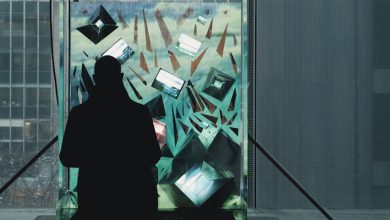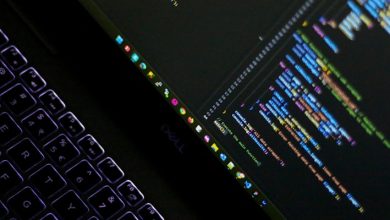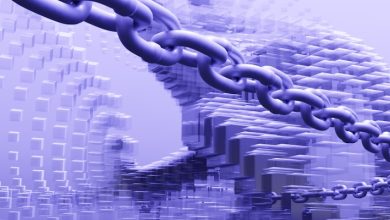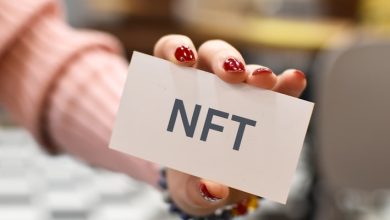The Growth of Decentralized Autonomous Organizations (DAOs)
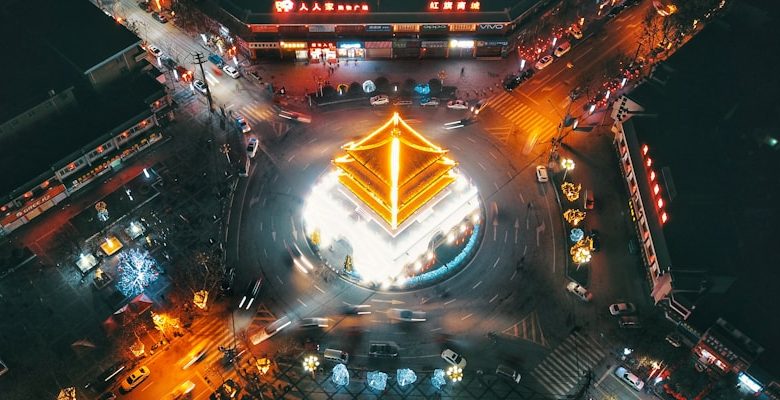
- Understanding Decentralized Autonomous Organizations (DAOs)
- The Rise of DAOs in the Digital Age
- How DAOs are Revolutionizing Traditional Business Models
- Challenges and Opportunities for Decentralized Autonomous Organizations
- The Future of Governance: Exploring DAOs
- Case Studies: Successful Implementations of DAOs in Various Industries
Understanding Decentralized Autonomous Organizations (DAOs)
Decentralized Autonomous Organizations, or DAOs, are a new way of organizing and governing entities without the need for a central authority. DAOs operate using smart contracts on blockchain technology, allowing for transparent and automated decision-making processes. Members of a DAO can vote on proposals and execute actions through the use of tokens.
DAOs are gaining popularity due to their potential for increased efficiency, transparency, and security compared to traditional centralized organizations. By leveraging blockchain technology, DAOs eliminate the need for intermediaries and reduce the risk of fraud or corruption.
One of the key benefits of DAOs is their ability to operate globally without being tied to a specific jurisdiction. This decentralized nature allows for greater inclusivity and participation from individuals around the world, regardless of their location or background.
While DAOs offer many advantages, they also come with challenges such as regulatory uncertainties and governance issues. As the technology continues to evolve, it is important for stakeholders to address these challenges and work towards establishing best practices for the development and management of DAOs.
Overall, DAOs represent a promising new model for organizational governance that has the potential to revolutionize how businesses and communities operate in the digital age. By embracing decentralization and automation, DAOs can empower individuals to collaborate and make decisions in a more democratic and efficient manner.
The Rise of DAOs in the Digital Age
Decentralized Autonomous Organizations (DAOs) have been on the rise in recent years, gaining popularity in the digital age. These organizations operate through smart contracts on blockchain technology, allowing for decentralized decision-making and governance.
DAOs are revolutionizing traditional organizational structures by eliminating the need for centralized control and intermediaries. This allows for greater transparency, efficiency, and trust among members. With DAOs, individuals can participate in decision-making processes and contribute to the growth of the organization without the need for a hierarchical management structure.
One of the key advantages of DAOs is their ability to operate autonomously, following pre-defined rules encoded in smart contracts. This eliminates the potential for human error or manipulation, ensuring that the organization functions in a transparent and predictable manner.
As the digital landscape continues to evolve, DAOs are poised to play a significant role in shaping the future of organizational governance. By harnessing the power of blockchain technology, these decentralized entities have the potential to revolutionize industries ranging from finance to governance to entertainment. The rise of DAOs marks a shift towards more democratic, transparent, and efficient organizational structures in the digital age.
How DAOs are Revolutionizing Traditional Business Models
Decentralized Autonomous Organizations (DAOs) are transforming traditional business models by introducing a new way of organizing and operating. DAOs utilize blockchain technology to create a transparent and decentralized structure that allows for more efficient decision-making processes. This shift towards decentralization eliminates the need for intermediaries, reducing costs and increasing efficiency.
One of the key ways in which DAOs are revolutionizing traditional business models is through their ability to foster a greater sense of community and collaboration among stakeholders. By allowing individuals to participate in the decision-making process through voting mechanisms, DAOs empower members to have a direct impact on the direction of the organization.
Additionally, DAOs are enabling the creation of innovative incentive structures that align the interests of all participants towards a common goal. Through the use of smart contracts, DAOs can automate payment processes based on predefined conditions, ensuring that all contributors are fairly rewarded for their work.
Furthermore, DAOs are opening up new opportunities for global participation in organizations, breaking down geographical barriers and enabling individuals from around the world to contribute their skills and expertise. This globalized approach to business is revolutionizing traditional models that were previously limited by physical location and local talent pools.
Overall, the rise of DAOs is reshaping the way businesses are structured and operated, offering a more democratic, transparent, and efficient alternative to traditional organizational models. As the technology continues to evolve, we can expect to see even greater innovation and disruption in the business world driven by the power of decentralized autonomous organizations.
Challenges and Opportunities for Decentralized Autonomous Organizations
Decentralized Autonomous Organizations (DAOs) present both challenges and opportunities in the world of blockchain technology and decentralized governance. One of the main challenges facing DAOs is the lack of regulatory framework to govern their operations. This uncertainty can deter potential participants and investors from engaging with DAOs due to concerns about legal compliance and accountability.
On the other hand, DAOs offer unique opportunities for innovation and disruption in various industries. By leveraging blockchain technology, DAOs can streamline decision-making processes, reduce bureaucracy, and increase transparency in governance. This can lead to more efficient and democratic organizations that empower individuals to participate in shaping the future of their communities.
However, DAOs also face technical challenges such as scalability and security vulnerabilities. As DAOs grow in size and complexity, ensuring the integrity of the network and protecting user funds becomes increasingly important. Developers and participants must work together to address these challenges and implement robust security measures to safeguard the interests of all stakeholders.
In conclusion, while DAOs face challenges in terms of regulatory uncertainty and technical limitations, they also present exciting opportunities for innovation and decentralized governance. By addressing these challenges and embracing the potential of DAOs, we can unlock new possibilities for collaboration, transparency, and democratic decision-making in the digital age.
The Future of Governance: Exploring DAOs
In the realm of decentralized autonomous organizations (DAOs), the future of governance is an intriguing topic that continues to captivate the interest of many. DAOs represent a new way of organizing and operating, leveraging blockchain technology to facilitate decentralized decision-making and governance processes. These organizations are designed to operate without the need for traditional hierarchical structures or centralized control, allowing for more transparent and efficient decision-making.
One of the key advantages of DAOs is their ability to promote greater inclusivity and participation among members. By utilizing smart contracts and blockchain technology, DAOs can streamline decision-making processes and enable members to vote on proposals in a secure and transparent manner. This not only enhances democratic principles within organizations but also fosters a sense of community and collaboration among members.
Furthermore, DAOs have the potential to revolutionize the way in which organizations are governed, allowing for more agile and adaptable structures that can respond quickly to changing circumstances. By decentralizing decision-making authority, DAOs can reduce the risk of corruption and ensure that the interests of all members are taken into account. This can lead to more equitable and sustainable governance practices that benefit the organization as a whole.
As the use of DAOs continues to grow and evolve, it will be crucial for organizations to explore new ways of governance that align with the principles of decentralization and transparency. By embracing DAOs, organizations can unlock new opportunities for innovation and collaboration, paving the way for a more inclusive and equitable future of governance.
Case Studies: Successful Implementations of DAOs in Various Industries
Decentralized Autonomous Organizations (DAOs) have been successfully implemented in various industries, showcasing their versatility and adaptability. Here are some case studies that demonstrate the effectiveness of DAOs:
- Finance Industry: In the finance sector, DAOs have revolutionized the way transactions are conducted. By utilizing smart contracts and blockchain technology, DAOs have enabled secure and transparent financial operations without the need for intermediaries.
- Healthcare Sector: DAOs have also made significant strides in the healthcare industry by streamlining patient data management and improving the efficiency of medical research. Through decentralized governance, healthcare organizations can ensure data privacy and enhance collaboration among stakeholders.
- Real Estate Market: DAOs have disrupted the traditional real estate market by enabling fractional ownership of properties and facilitating transparent property transactions. This innovation has opened up new opportunities for investors and homeowners alike.
- Supply Chain Management: DAOs have been instrumental in optimizing supply chain management processes by enhancing traceability and accountability. By leveraging blockchain technology, DAOs have improved the efficiency of logistics and reduced operational costs.
- Entertainment Industry: In the entertainment sector, DAOs have empowered content creators and consumers by providing a decentralized platform for sharing and monetizing digital assets. This decentralized approach has democratized the entertainment industry and eliminated the need for centralized gatekeepers.
